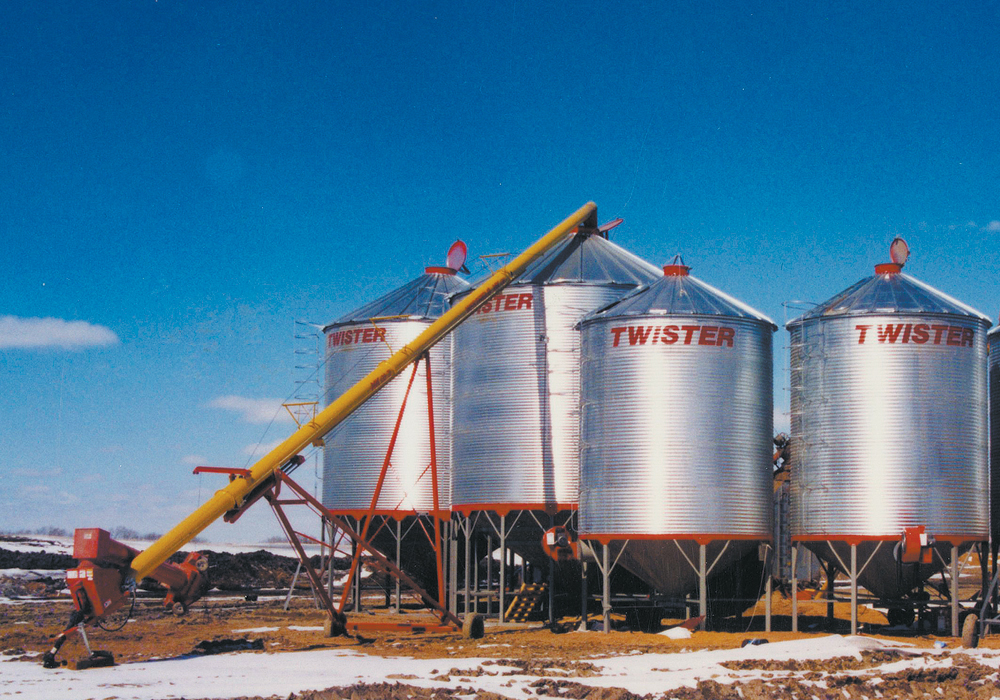Officials with the federal agriculture department were in Vancouver last week where they shared details of a long-awaited economic analysis on proposed seed royalty collection models.
But details of the economic analysis have not yet been made public and it remains to be seen if Agriculture Canada will share its findings with other stakeholders in the Canadian grain sector, including grain growers.
The Western Producer has also learned that Agriculture Canada does not intend to complete a federal consultation process on seed royalties.
The consultation process was launched by Ottawa in 2018 and was partially completed before it was suspended in mid-2019 in advance of last fall’s federal election.
Read Also

Trump’s tariffs take their toll on U.S. producers
U.S. farmers say Trump’s tariffs have been devastating for growers in that country.
On Feb. 28, The Western Producer requested an opportunity to interview an Agriculture Canada official about the status of the seed royalty consultation.
So far, that request has been declined by Agriculture Canada.
A week later, Agriculture Canada media relations officer James Watson sent an email to this newspaper, confirming there are no plans to resume the federal consultation process.
“Given the work currently underway by some producer organizations and the seed industry to discuss a path forward on value creation, further government-led consultation activities are not yet planned,” Watson said in his email.
“The government continues to stand ready to work with stakeholders as a partner in this process.”
Watson confirmed that Agriculture Canada would present the results of its seed royalty economic analysis at a March 6 Grains Roundtable (GRT) meeting in Vancouver, “fulfilling the request that was made by the GRT during the course of formal consultations.”
However, “the government has not taken any decisions with respect to the models that were discussed at the meeting, nor on the future direction of value creation/seed royalties,” Watson added.
Last month, the Canadian Plant Technology Agency (CPTA) and the Canadian Seed Trade Association (CSTA) announced plans to launch a pilot seed royalty collection project that will enable seed variety developers and distributors to collect royalties on the use of farm-saved seed, using seed variety use agreements, or SVUAs.
The pilot program will initially be applied to three new seed varieties — two new wheat varieties developed by Limagrain Canada and distributed by Canterra, as well as a North Dakota State University soybean variety, to be distributed in Western Canada by SeCan.
None of the three varieties to be included in the pilot project this year was developed with financial support from Canadian taxpayers or Canadian farmers.
However, information obtained by The Western Producer confirms that additional seed varieties from publicly funded plant breeding programs could be included in the pilot program as early as next year.
In early February, SeCan officials sent a memo to SeCan’s western Canadian seed grower members, outlining the organization’s plans to participate in the new seed royalty pilot project.
The memo confirms that yet-to-be commercialized wheat varieties AAC Starbuck VB and AAC Wheatland VB will be included in the seed royalty pilot project when the two varieties become available as certified seed for the 2021 planting season.
Both varieties were developed by plant breeders at Agriculture Canada, with financial support from western Canadian farmers.
“While many of the specifics (pertaining to AAC Wheatland and AAC Starbuck) are under development, we want to let members know about these important products as soon as possible so they can factor this information into their 2020 seeding plans,” the SeCan memo stated.
“This is not a decision we have taken lightly, and we realize it will impact the uptake of the varieties by some customers. But at the same time, we recognize the agronomic strength of these new varieties will generate strong demand. The fact that both varieties are midge tolerant helps, because they already have stewardship restrictions in place that limit the use of farm-saved seed.”
SeCan said the start of the SVUA pilot project is an important step that will ensure the long-term sustainability of plant breeding in Canada.
Agriculture Canada maintains that the seed industry organizations involved in the pilot project are best placed to answer questions about it.
“There has been no regulatory change made to facilitate the pilot, as it is based on a voluntary contract between the seed company and the producer,” Watson’s email said.
The AAFC’s economic analysis, which was requested by members of the federal Grains Roundtable in 2017, was intended to assess the financial impact of implementing a new seed royalty collection system in Canada.
















